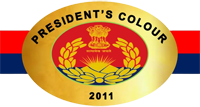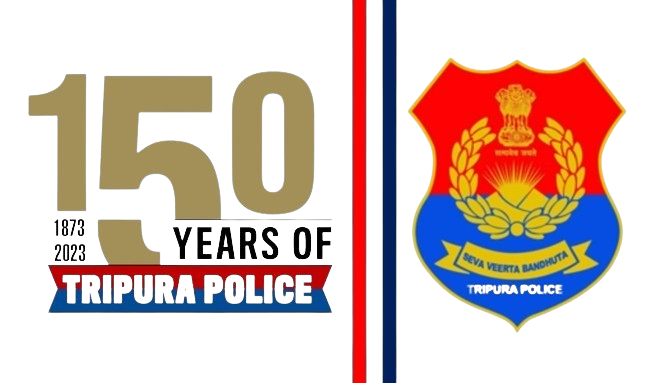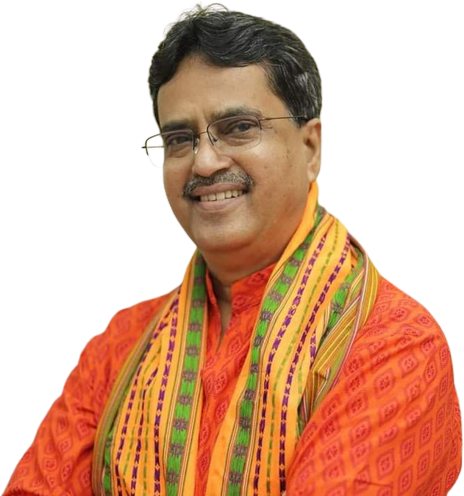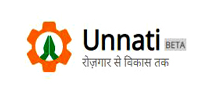Prayaas
INTRODUCTION
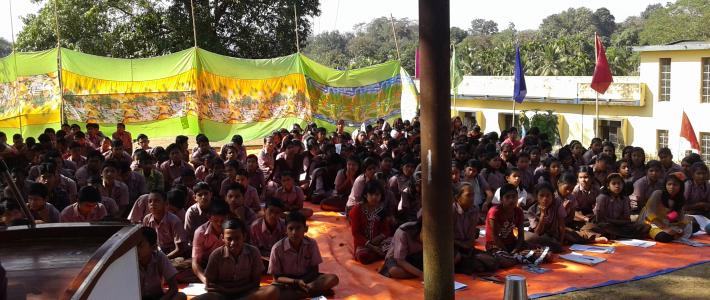
In a democratic nation, the main strength of the country is its people, its citizens. A democratic state provides all basic rights and privileges to its citizens including security so that they can prosper and in turn allows the country to flourish. Safety and security of the citizens in a country are guaranteed by the law of the land. The police personnel see to it that the law is properly followed and if not done so, the offenders are taken into account. But the duty of the police will become easier and their level of efficiency and success will reach newer and greater heights if people or the citizens co-operate with the police and participate actively in preventing occurrence of crime through community policing.
Community policing world over has proved to be a powerful instrument in enforcing the process of law. Prayaas is one such initiative of Tripura Police to forge a strong Police Public Partnership aimed at improving the delivery of law enforcement services to the community. This model of Policing aims to achieve the motto of Tripura Police ‘SEVA’‘VEERTA’ and ‘BANDHUTA’ through a transformational approach which calls for a change from reactive to proactive policing.
Each state in our country has different law and order problem and crime pattern. Insurgency in the state which had been a serious cause of concern was contained without antagonising and alienating general public by taking them into confidence. Thus this project envisages taking the public along by enlisting the support in controlling and preventing over all crime, crime against women, Motor accident cases as well as insurgent activities. In Tripura it is seen that in order to effectively contain and prevent crime in the state Tripura Police needs to focus on the number of road accidents which result in considerable loss of life and property, the escalation of crime related to physical and mental violence against women and the residual insurgency in the state.
The scheme will be initially introduced in all Police Stations located in State Capital, District Headquarters and Sub-divisional Headquarters of the state. A periodic assessment of the scheme will be carried out and if found successful and useful it will be extended to cover all police stations of the state. The entire initiative will be implemented with the existing resources without any additional requirement of funds and manpower.
OBJECTIVES:
The main objective of this project is to
Provide a platform for 24 x 7 liasion between police and Public so as to enhance co-operation and mutual understanding between the two and improve the service delivery of Tripura Police in their crime control initiatives.
Transform the stereotyped image of Police from a ruthless enforcer to a people friendly enforcer.
Prevent Road Traffic Accidents by devising appropriate, effective and futuristic mechanisms in consultation and coordination with Transport associations, Transport department, unions related to Motor workers, College and School students, Agartala Municipal Corporation, Nagar Panchayats, clubs and other government departments wherever required.
Prevent and check crime against women by promoting awareness on gender sensitization, women’s rights as well as on various Acts dealing with Crime against women in schools, colleges, Panchayat, village councils and block level meetings in coordination with education department, social welfare department, district administration, Panchayat committees, Village Development Councils and State Women Commission.
Deal with the problem of residual insurgency through involvement of various stakeholders.
Educate the people on the rights envisaged in Tripura Police Act 2007.
PRAYAAS BEAT COMMITTEE:
Each Police Station area will be divided into several Police Beats consisting of desired number of Village Panchayats/Wards by the officer in charge of the police station in close coordination with CI/SDPO based on the crime pattern in the police station area.
One SI/ASI/H/C posted at concerned Police station shall be designated as beat officer and a ‘PRAYAAS’ Beat Committee’ shall be formed in every beat.
A PRAYAAS’ Committee shall be formed in every Police Station consisting of all beat officers under that police station. This committee will be headed by Officer-in-charge of the concerned Police Station.
The Officer-in-charge of Police Station in consultation with the Circle Inspector and SDPO shall select the names of persons on voluntary basis to be included in the Prayaas Beat level Committee.
District SP and Addtl SPs will also be authorized to nominate the members of the beat community in addition to beat committee formed by O/C and SDPO.
The constitution of the Committee should be such that, common citizens with civic sense and sense of social responsibility get an opportunity to utilize their talents and ideas for the greater safety and security of the society at the local level.
Respectable citizens from the locality who are active in educational and cultural field should be included in the committee. Teacher/ Headmaster/ Principal/ Retired Police/ Civil officers/ Ex-Servicemen/ Respectable Public Representative/ Ward Councilor/ Local Headmen/ Merchants/ NGOs/ Motor Shramik Workers/ Representative of Association office–bearers/ Representatives of Women organization/Service providers & Protection officers under PWDV Act may be included in the committee.
The Committee shall have representation from among Women, Scheduled Castes/Scheduled Tribes and Minority communities.
Experts and Social Workers not belonging to the beat area can also be co-opted as members of beat committee.
NCC, NSS, Motor Unions related to motor workers, local clubs may be approached to associate themselves with the project as volunteers to improve traffic management at Bazaars, crowded places, Melas/festivals, in front of Schools at proper places, Hospitals etc.
Care shall be taken to avoid any allegation regarding prejudiced treatment meted out to any communal or political interest during implementation of ‘PRAYAAS’ scheme.
The Committees may be reconstituted as and when required.
Those who are involved in any criminal case should not be included in the Committee.
The O/C PS of the police station should be designated as the Community Policing Officer in every PS to act as a bridge between the community/public and the Committee.
DUTIES AND RESPONSIBILITIES OF PRAYAAS BEAT OFFICER:
Immediately after taking charge, Beat Officers should get acquainted with every household in his beat.
Geography and topography of the beat should be well known to the Beat Officer.
The Beat officer should also keep a sketch map marking the major junctions, buildings etc. of the area.
He should also keep a diary containing the phone numbers and addresses of all important establishments and persons. A copy of the map and the diary should be kept in the Police Station also.
The name and identity of the Beat officer may be exhibited at important places in the beat area. This will help the public to know their Beat officer.
The Beat officer should gain the confidence of the public in his area in such a manner that any common citizen would feel free to approach him in a fearless and comfortable manner.
In the event of natural calamity, outbreak of epidemic diseases etc. in his beat area, the Beat officer may immediately inform the same to the concerned authorities and also give leadership in taking remedial actions.
He should not discuss or pass on information, publicly or privately about any case under investigation or trial in the Police Station/Court.
In many localities senior citizens including retired Police officers live alone. The Beat officer may collect information about such citizens. Their address, phone numbers etc. may be kept in a separate register as a database to be utilized in furthering the objectives of this programme.
Educate the prayaas beat committee on the various rights of public envisaged in Tripura Police Act 2007.
SUPERVISION OF THE PRAYAAS BEAT COMMITTEE:
O/C and SDPO will play a lead role in ensuring effective functioning of these committees.
The Committee should meet at least once in a month at Beat level.
SDPO shall have a meeting of all Beat officers once in a month.
The participation of maximum number of members from the local Beat may be ensured by SDPO and O/C PS in close coordination with beat officers
SDPO may examine the reasons for poor attendance and participation, if any.
Officer in charge of Police Station shall attend all beat meetings.
Sub-Divisional Police Officers shall attend meetings of all beats at least once in two months.
SP shall attend these meetings as and when he finds time but preferably he should cover all the beats at least once in a year.
SP and SDPO will supervise the functioning of Prayaas Beat Level Committees and will intervene in case issues that cannot be handled at PS level come up.
TOPICS FOR DISCUSSION IN PRAYAAS BEAT COMMITTEE MEETINGS:
Discussion on various crime trends in the beat area and to elicit support and suggestions from the public for dealing with the trends.
Assessing the effectiveness of patrolling parties at vulnerable areas, like Bazaars, Bordering areas, Residential areas in urban set up, shopping complex with a view to prevention of crimes.
Discussion on matters relating to Crime against Women, effective traffic management, organized crime, like emergence of any new miscreant/Anti National Elements groups, Crime against property and Insurgency related issues.
Promoting awareness on gender issues and women’s rights in schools, colleges, Panchayat, village councils and block level meetings in close coordination with Women Commission.
Promoting awareness on safe driving, traffic rules and road safety related matters in schools, colleges, panchayats, village councils and block level meeting in close coordination with education and transport department at least once in two months.
Awareness campaigns targeting tribal youths in interior areas to spread message about ill effects of insurgency. Surrendered extremists may also be associated in this activity. Campaigns should specifically be organized in schools, colleges, Village Development council meetings, panchayat meetings etc in interior areas.
Spreading awareness on suspicious objects at public places, suspicious people at public places, human trafficking, crime against women, insurgency and fake currency notes.
Organizing awareness programme to educate the public on various social menace like drug addiction.
O/C PS and SDPOs shall take the lead in the awareness programmes in close coordination with the prayaas beat committee and other relevant departments.
Prayaas Beat Committee shall take decisions which can be legally implemented through consensus.
ACTIVITIES OF THE PRAYAAS BEAT COMMITTEES:
Night patrolling with public co-operation at Bazaars and vulnerable areas.
Co-coordinating with private security guards.
Collecting information about new residents, tenants and strangers.
Assist senior citizens and physically challenged citizens whenever possible.
Organizing Counseling centers to resolve family discords, drinking habits etc. may be started with the help of Women commission.
Implementation of projects encouraging blood donation, eye donation, organ donation etc.
School based safety & vigilance programme.
Preventing illicit sale of liquor and drugs
Awareness programme to curb circulation of FICN and to curb activities of dishonest finance companies and other such units.
Placement of Suggestion/Complaint Boxes at open places, to be decided by the ‘Prayaas Beat Committees, for prompt attention of local Police.
Creating awareness of various Acts dealing with Crime against women including sexual harassment.
Create awareness on the rights of people enshrined in Tripura Police Act 2007.
Civic action programme including entertainment and sports in interior areas with the help of civil administration and other agencies.
To organize sports/ cultural events together with the citizenry from time to time.
ESTABLISHMENTS WITH WHICH THE PRAYAAS BEAT COMMITTEE MAY INTERACT:
Tripura Commission for women
Juvenile Justice Board
Free Legal Aid Cells
Blood Banks
Rehabilitation Centers for Women
Self Help groups for women
Hospitals
Fire Service
Disaster management facilities and organizations
Organization like Red Cross, NCC, NSS etc.
Ex-service men organizations
Pensioners’ organizations
Senior Citizens’ organizations
Schools and colleges through Education Department
NGOs.
ROLLOUT OF THIS PROJECT:
The rollout of this project should be gradual with the available resources. No extra resources or manpower will be provided.
SDPO’s shall be trained as master trainers to roll out the project in a workshop on 27.12.10.
It will be implemented with effect from 4th January 2011 in all police stations located in state, district and sub divisional headquarters.
Periodical assessment of the scheme will be carried out once in two months by the undersigned in close consultation with DIG range and IGP(L/0) for improvement, continuation and extension of this scheme in rest of the police stations of the state.
